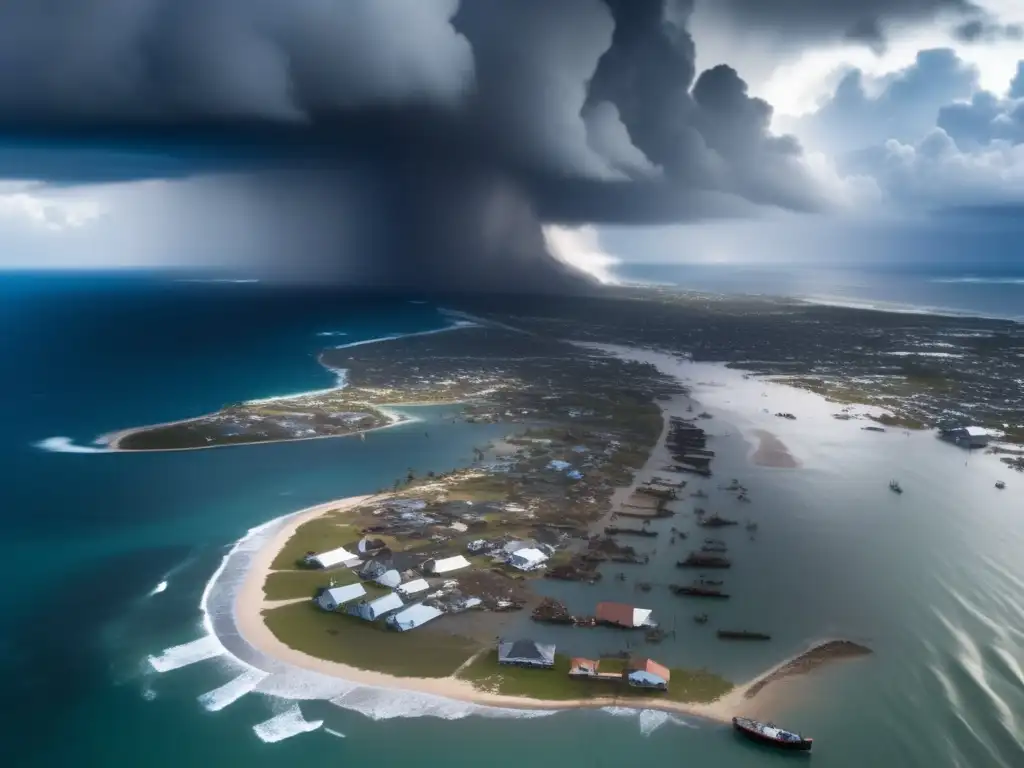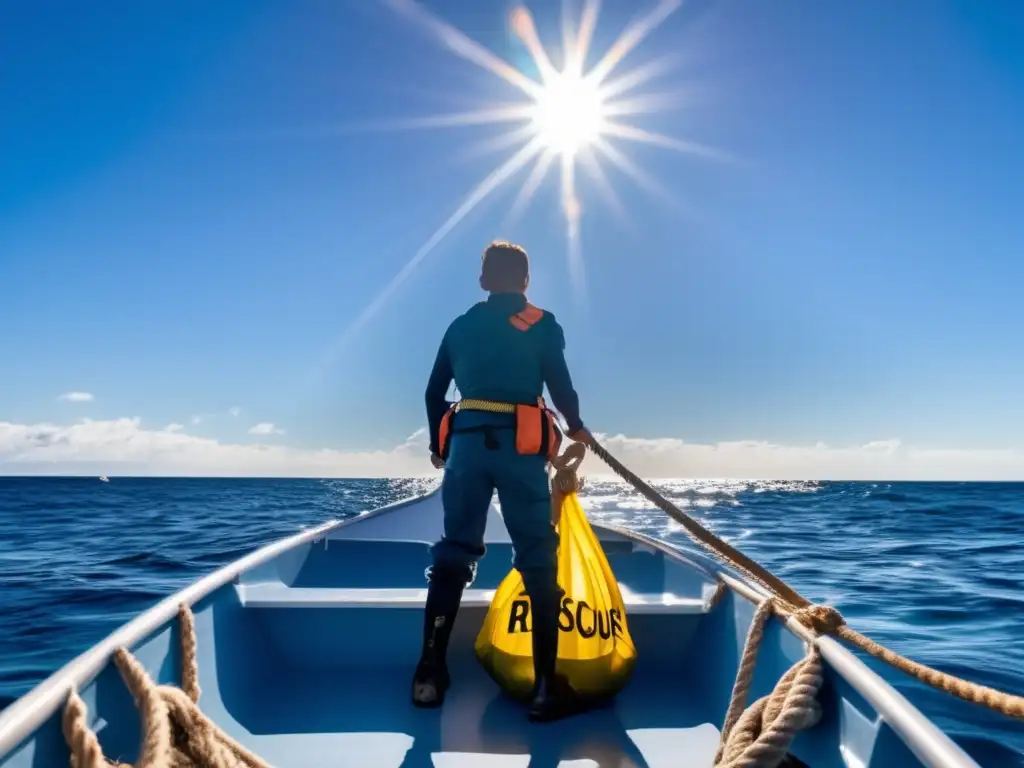Lessons From Around The World: Global Insights Into Hurricane Preparedness

Lessons from Around the World: Global Insights into Hurricane Preparedness
Introduction
Hurricanes are one of the most devastating natural disasters that can hit any region. In recent years, we've witnessed unprecedented hurricanes that have caused significant damage to homes, businesses, and infrastructure, and resulted in the loss of many precious lives. While hurricanes are a common occurrence in some regions, they can also occur unexpectedly in areas that are not typically prone to such disasters. It's therefore imperative that everyone, regardless of their location, be adequately prepared for a hurricane. In this article, we'll look at some global insights into hurricane preparedness and the lessons learned from past hurricane experiences around the world.
Global Insights into Hurricane Preparedness

Disaster Preparedness Planning
Disaster preparedness planning is an essential aspect of managing hurricanes. This involves developing plans and procedures that will help individuals, families, and communities prepare for and respond to a hurricane effectively. In the United States, the Federal Emergency Management Agency (FEMA) has developed disaster preparedness guidelines that provide essential information on what to do before, during, and after a hurricane. Similarly, other countries have their own disaster preparedness plans. For example, in Japan, the government has set up a robust disaster management system that includes emergency response teams, disaster warning systems, and evacuation plans. Singapore has also developed a comprehensive emergency preparedness plan that includes systems for early warning, evacuation, and ensuring food security.
Building Resilient Infrastructure
Building resilient infrastructure is another critical aspect of hurricane preparedness. This involves constructing buildings, roads, and other infrastructure that can withstand the impact of a hurricane. Countries like the Netherlands, which are located in regions that are vulnerable to hurricanes, have invested heavily in building resilient infrastructure. The country has developed an innovative system of dams and sea barriers that protect its residents against the impact of hurricanes. Similarly, countries like Bangladesh have invested in developing cyclone shelters in vulnerable areas to protect their citizens during a hurricane.
Effective Communication Systems
During a hurricane, effective communication systems are crucial for disseminating information to the public. This includes providing timely and accurate information on the hurricane's path, intensity, and potential impact. Countries like the United States have sophisticated communication systems that include emergency broadcasting networks, social media platforms, and mobile apps that provide real-time updates on hurricanes. Other countries like Mexico have developed early warning systems that use sirens, loudspeakers, and radio broadcasts to alert people living in vulnerable regions.
Lessons Learned from Past Hurricane Experiences around the World

The Importance of Planning
One of the most significant lessons learned from previous hurricane experiences is the importance of planning. Those living in hurricane-prone areas should develop a hurricane preparedness plan well before a storm hits. This plan should include details on evacuation routes, communication plans, and emergency supply kits. Additionally, it's essential to ensure that all family members are aware of the plan and know what to do when a hurricane hits.
The Need for Resilient Infrastructure
Past hurricanes have demonstrated the critical need for resilient infrastructure. Buildings, roads, and other infrastructure in vulnerable areas must be constructed to withstand hurricane-force winds and flooding. In some cases, it may be necessary to retrofit existing buildings to make them more hurricane-resistant. Additionally, governments and other organizations should invest in building sea barriers and other protective infrastructure to minimize the impact of hurricanes.
The Importance of Effective Communication
Effective communication is critical during a hurricane. This includes providing timely and accurate information on the hurricane's path, intensity, and potential impact. Governments, emergency management agencies, and other organizations must work together to develop effective communication systems that can reach all individuals in vulnerable areas. Additionally, it's essential to provide information in multiple languages to ensure that non-native speakers can understand the risks and take appropriate action.
Frequently Asked Questions

-
How can I prepare for a hurricane?
To prepare for a hurricane, you should develop a disaster preparedness plan that includes evacuation routes, communication plans, and emergency supply kits. Additionally, you should ensure that all family members are aware of the plan and know what to do when a hurricane hits.
-
What should I do during a hurricane?
During a hurricane, you should follow your disaster preparedness plan. You should evacuate if necessary and stay indoors if you cannot evacuate. Additionally, you should have an emergency supply kit that includes water, food, first-aid supplies, and other essential items.
-
What should I do after a hurricane?
After a hurricane, you should wait until authorities say it is safe to return to your home. You should also avoid standing water, as it may be contaminated or carry dangerous pathogens. It's also important to document any damage to your property and contact your insurance company.
-
What are some common mistakes people make during hurricanes?
Some common mistakes people make during hurricanes include failing to evacuate when instructed to do so, not having an emergency supply kit, and failing to secure loose objects that can be blown away by high winds.
-
What are some signs that a hurricane is approaching?
Some signs that a hurricane is approaching include dark clouds, high winds, heavy rain, and a sudden drop in barometric pressure.
Conclusion
Global insights into hurricane preparedness provide a wealth of information and lessons that can be used to improve hurricane response and minimize the impact of these devastating natural disasters. Disaster preparedness planning, building resilient infrastructure, and effective communication systems are critical components of hurricane preparedness. By following the lessons learned from past hurricanes, individuals, families, and communities can effectively prepare for and respond to a hurricane and protect their loved ones and property. HurricaneInsider.org provides valuable resources for those living in hurricane-prone areas or anyone interested in learning more about hurricanes.
It's important to remember that hurricanes are unpredictable, and it's impossible to completely eliminate the risks associated with them. However, by being adequately prepared, we can minimize the impact of hurricanes and protect ourselves and our communities. We encourage our readers to share their thoughts and experiences in the comments section and positively engage with HurricaneInsider.org by subscribing and sharing our articles on social media and other platforms.
Additional Resources

For additional information and resources on hurricane preparedness, check out the following links:
- National Hurricane Center: https://www.nhc.noaa.gov/
- Federal Emergency Management Agency: https://www.fema.gov/
- Centers for Disease Control and Prevention: https://www.cdc.gov/disasters/hurricanes/index.html
If you want to discover more articles similar to Lessons From Around The World: Global Insights Into Hurricane Preparedness, you can visit the Hurricane preparedness: category.
Leave a Reply




Articulos relacionados: